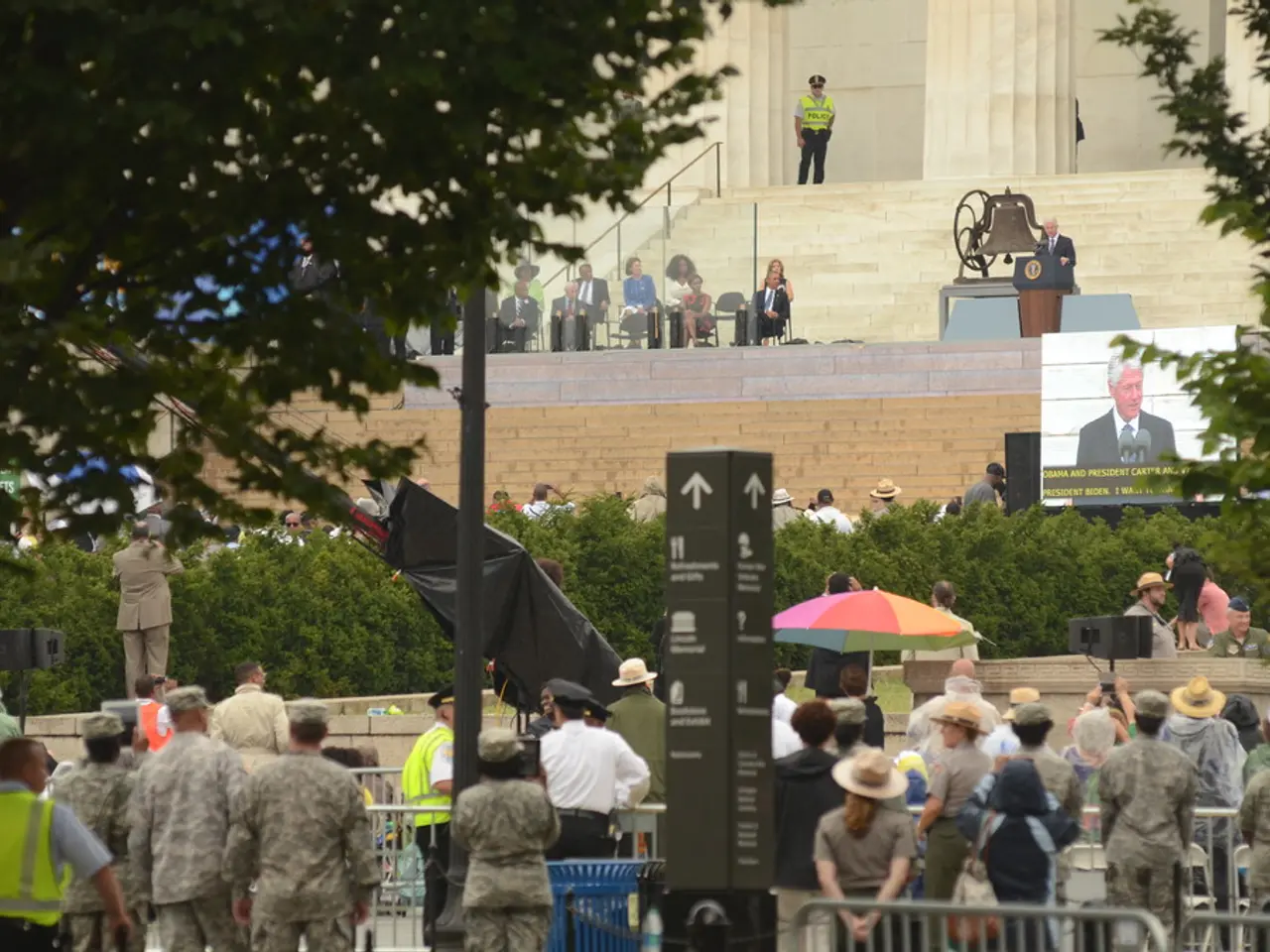IAEA-Iran Discussions Complex as Agency Prepares for Upcoming Meeting; No Access Planned for Iranian Nuclear Sites by IAEA
Iran is currently engaged in negotiations with the International Atomic Energy Agency (IAEA), despite halting physical access for inspectors following a series of bombings in June 2025. The bombings, which were the result of Israeli-American airstrikes, targeted key Iranian nuclear facilities [1][2][3][4][5].
The IAEA's board declared Iran in breach of its non-proliferation obligations on June 12, prompting Iran to enact a law suspending cooperation with the agency [1][4]. Since then, IAEA inspectors have been unable to access these sites.
The latest round of talks with the IAEA is expected to take place in the coming days, with discussions remaining ongoing. Iran, however, disputes the IAEA's recent report showing a sharp increase in uranium enrichment to 60 percent, calling it based on “unreliable and misleading information” allegedly provided by Israel [1].
Iran remains open to taking measures to assure the peaceful nature of its nuclear program but conditions these on the lifting of sanctions. The talks with the IAEA are technical and complicated, according to Iran's Foreign Ministry [2]. Cooperation with the IAEA will require approval from Iran's Supreme National Security Council [6].
The IAEA's deputy director general, Massimo Aparo, visited Iran on Monday to discuss the method of interaction between the agency and Iran. However, the IAEA has not issued a statement about Aparo's visit or any planned access to Iranian nuclear sites [7].
The resumption of talks between Iran and the United States for a deal over its nuclear program is uncertain. The conflict between Iran and Israel, which lasted for 12 days and resulted in Israeli strikes on key Iranian nuclear sites, occurred a day after the IAEA's statement [8].
Iran's Foreign Ministry spokesperson, Esmaeil Baghaei, criticized the IAEA for its lack of response to the Israeli strikes. Iran's President Masoud Pezeshkian stated that Israel's strikes had aimed to eliminate Iran's hierarchy but had failed to do so [9]. Pezeshkian also told Al Jazeera that Iran is prepared for any future war with Israel and is committed to continuing its nuclear program for peaceful purposes [10].
It is important to note that Iran has had limited IAEA inspections in the past during negotiations with the West. The US intelligence agencies and the IAEA assessed that Iran last had an organized nuclear weapons program in 2003 [11]. Iran has been enriching uranium up to 60 percent, but this is still below weapons-grade levels of 90 percent [12].
Deputy Foreign Minister Kazem Gharibabadi stated that the talks with the IAEA will continue in the future, but did not provide further details [13]. The International Atomic Energy Agency (IAEA) is scheduled to visit Iran for the first time since July 3, 2021 [14].
In summary, Iran is continuing diplomatic nuclear talks with the IAEA despite halting physical access for inspectors following the June 2025 bombings. New negotiation rounds are expected soon, yet access to nuclear sites remains blocked. Iran demands sanction relief as a precondition for confidence-building steps and disputes IAEA findings. The resumption of talks between Tehran and Washington for a deal over its nuclear program is uncertain.
Read also:
- Court petitions to reverse established decision on same-sex marriage legalization
- Trump's enforcement actions in Washington D.C.: Insights from the political arena
- Chinese Ambassador issues stern message to India regarding Trump's tariffs in midst of escalating trade feuds
- Aircraft collides with another one on the runway during landing at Montana airport, igniting flames








